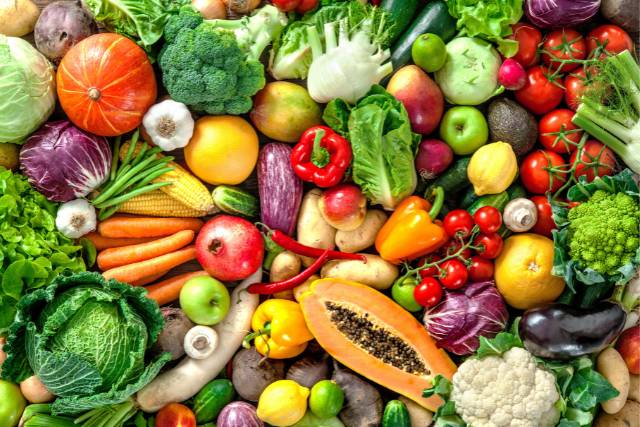Recent Posts
-

- Diabetes-Friendly Nutrition: Smart... 08.12.2024
-

- Nutrition for Chronic... 08.12.2024
-

- Anti-Inflammatory Diet: Food... 08.12.2024
-

- Low-Sodium and Heart-Healthy:... 08.12.2024
-

- Plant-Based Diets for... 08.12.2024
Antioxidants in Organic Vegetables: A Health Boost

Being ill today, particularly as an adult, may be distressing. It prevents you from doing physical duties and depletes your energy to the point that you simply want to lie down and relax (which is the right thing to do, rest). This is because our bodies are prone to many illnesses, particularly when we consume harmful and needless meals.
Being physically clean and inwardly powerful is essential to avoid and combat infections inside your radius. Other strategies to stay healthy include taking vitamins and medications, engaging in physical activities, and, of course, eating antioxidant-rich foods.
Antioxidants are chemicals in your body that combat free radicals. Free radicals might damage your body if their quantities get too high. They've been connected to various diseases, including diabetes, heart disease, and cancer. To keep free radicals at bay, your body develops its antioxidant defenses. Antioxidants, mainly fruits, vegetables, and other plant-based, whole meals, may also be present in the diet. Many vitamins, including vitamins E and C, are potent antioxidants.
And this is excellent news for everyone since organic vegetables are highly antioxidant. This is because the plant produces antioxidant molecules that are nutritionally helpful to humans in response to oxidative stress.
Organic crops endure greater stress than conventional crops because they are neither treated with synthetic pesticides nor fertilized with high quantities of artificial fertilizer. As a result, they create higher levels of antioxidants in reaction to that stress.
Another idea holds that plants will devote their resources to forming new plant tissue rather than secondary metabolites in high-nutrient situations (such as those seen on typical farms where synthetic fertilizer is utilized).
In less nutrient-rich environments, however, development is restricted by a shortage of nutrients. Therefore more resources are available for secondary metabolites. As a result, when nutrient levels fall from high to moderate, antioxidant levels rise.
So much for hypotheses; here are the advantages of antioxidants in the body:
These may be useful in the prevention of cancer.
According to some studies, antioxidants may help prevent some of the damage caused by free radicals, which can contribute to cancer. Nevertheless, additional study is required to understand if antioxidants included in meals might help lower people's cancer risk.
These may be beneficial to your eyes.
AMD, or age-related macular degeneration, is the leading cause of persistent visual loss in persons over 60. It occurs when the macula, a vital area deep in the back of your eye, starts to deteriorate. It may eventually cause loss of your central visual field.
Antioxidants may reduce the risk of AMD by up to 25%. These help you maintain more of your eyesight if you already have AMD. Cataracts may be decreased by taking antioxidant vitamins C and E. These protein deposits cloud the lens near the front of the eye, resulting in impaired vision. Antioxidants help reduce the growth of cataracts, allowing patients to keep superior eyesight for a more extended period.
These may be beneficial to your heart.
There is much dispute regarding whether antioxidants help reduce the risk of heart disease. On the one hand, studies have indicated that persons who consume more fruits and vegetables have a decreased chance of developing heart disease and stroke. Early study suggests that antioxidants may be to blame for this advantage.
Follow-up trials with antioxidant supplements, on the other hand, have failed to demonstrate the same advantages. Some experts think this is due to greater antioxidant doses in supplements. Obtaining antioxidants from foods may be the key, but further study is required to see if there is a genuine link.
Although antioxidants offer several potential health advantages, there are a few things to remember, especially if you get them from supplements. If you take antioxidant supplements, they may interfere with medications you are taking for another ailment. If you smoke and consume large dosages of beta-carotene, your chances of developing lung cancer increase. You have an increased risk of prostate cancer and stroke if you drink much vitamin E.
Discuss with your doctor all of the drugs and supplements you use. They will assist you in ensuring that anything you take is safe for you.
Disclaimer: The information provided in this article is for general information purposes only. All information in this article is sourced from other web sites, and we do not represent any rights regarding the contents and information on the site. All rights belong to their original owner.
Sources:
- Antioxidants Explained in Simple Terms (healthline.com)
- Antioxidants: Are There Good For You? Pros and Cons (webmd.com)





